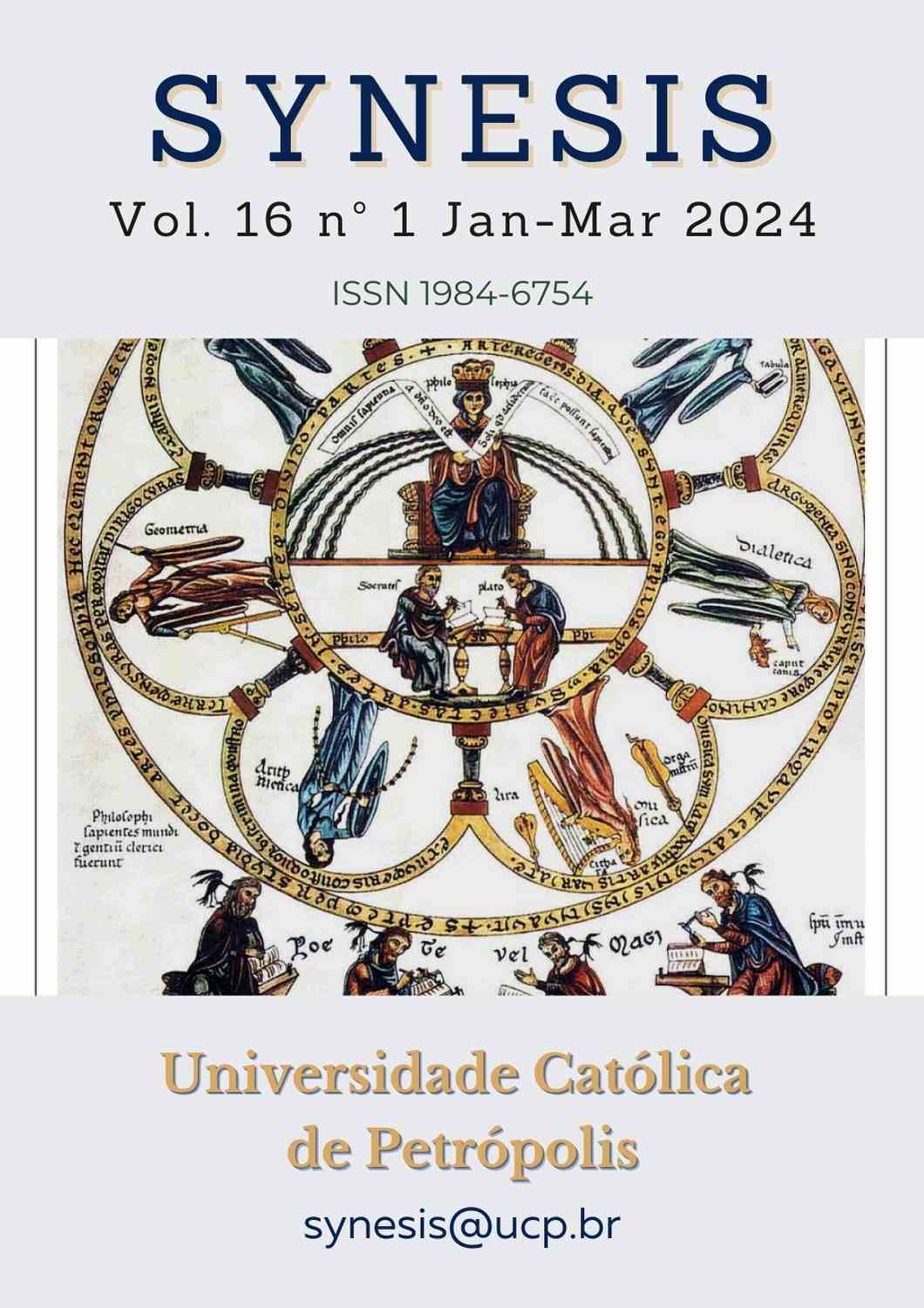Abstract
ChatGPT appears as an opportunity as well as a challenge for education. The growing development of AI, including ChatGPT, is irreversible. ChatGPT is increasingly involved in all areas of research and teaching at current universities in Vietnam. Teaching Marxist-Leninist philosophy at universities in Vietnam must be transformed to live together without banning and mastering ChatGPT and controlling it so that it can effectively support the research, teaching and learning of philosophy, especially in era of technology and digital transformation. Faced with the current impact of ChatGPT, the role and position of Marxist-Leninist philosophy teachers need to change, not be reduced but developed, especially professional and professional capacity needs to be significantly improved in order to adapt to the ChatGPT teaching environment. Teachers must evaluate all lesson content that ChatGPT provides to correct or correct errors or update knowledge, especially adding situations or linguistic contexts. ChatGPT can basically do the task of providing knowledge to learners, then the teacher must change roles, becoming an appraiser, analyzer, exploiting knowledge, training skills, and guiding learning methods. The last new episode is to evaluate the development of learner capacity. This research was conducted to analyze and clarify the basic contents related to the teaching of Marxist-Leninist philosophy at universities in Vietnam before the impact of ChatGPT. The results show that ChatGPT can bring many great benefits in educational activities in general and the teaching of Marxist-Leninist philosophy in particular at universities in Vietnam today. In addition to stating and analyzing the impacts of ChatGPT on teaching Marxist-Leninist philosophy at universities in Vietnam expressed through six basic points, the article also offers basic solutions to adapt to the situation. The impact of ChatGPT on teaching Marxist-Leninist philosophy at universities in Vietnam today. The limitation of this study is that it has not analyzed the factors that affect the improvement of the quality of teaching Marxist-Leninist philosophy at universities in Vietnam before the impact of ChatGPT./.
References
Assessing the impact of ChatGPT in higher education, retrieved from: https://hcmussh.edu.vn/tin-tuc/danh-gia-ChatGPT-trong- Giao-duc-dai-hoc
Do Men, how does ChatGPT create challenges for the education sector? Retrieved from: https://vneconomy.vn/ChatGPT-tao-ra-thach-thuc-voi-nganh- Giao-duc-nhu-nao.htm
Fuchs, K (2023), Exploring the opportunities and challenges of NLP models in higher education: Is ChatGPT a blessing or a curse? Front. Educ, 8, 1166682
Gilson, A.; Safranek, C.W.; Huang, T.; Socrates, V.; Chi, L.; Taylor, R.A.; Chartash, D (2023), How does CHATGPT Perform on the United States Medical Licensing Examination? The Implications of Large Language Models for Medical Education and Knowledge Assessment. JMIR Med. Educ, 9, e45312.
Iskender (2023), Holy or Unholy? Interview with Open AI's ChatGPT, European Journal of Tourism Research, 34, 3414. https://doi.org/10.54055/ejtr.v34i.3169
K. Lo (2023), What Is the Impact of ChatGPT on Education? A Rapid Review of the Literature. Education Sciences. vol. 13, no. 4:410, https://doi.org/10.3390/educsci13040410
Neuman, M.; Rauschenberger, M.; Schön, E.M (2023), "We Need To Talk About ChatGPT": The Future of AI and Higher Education. Hochschule Hannover, 1, 1–4.
Olivia b. Waxman (2023), The Creative Ways Teachers Are Using ChatGPT in the Classroom, retrieved from: https://time.com/6300950/ai-schools-ChatGPT-teachers/
Rahman, M.M.; Watanobe, Y (2023), ChatGPT for education and research: Opportunities, threats, and strategies. Appl. Sci. 13, 5783.
Strzelecki, A (2023), To use or not to use ChatGPT in higher education? A study of students' acceptance and use of technology. Interact. Learn. Environ, 1–14.
The Chronicle of Higher Education. (2023). What you need to know about ChatGPT. The Chronicle of Higher Education. Retrieved March 24, 2023, from https://www.chronicle.com/newsletter/teaching/2023-03-16
The Education sector proactively researches and uses ChatGPT, artificial intelligence, retrieved from: https://moet.gov.vn/tintuc/Pages/tin-tong-hop.aspx?ItemID=8410
Tran Mai Uoc (2023). Applying Ho Chi Minh 's thoughts on people to promote the role of university lecturers before the impact of the current ChatGPT in Vietnam. European Chemical Bulletin,12 (Special Issue 4), 5926-5936. Retrieved from https://www.eurchembull.com/issue-content/applying-ho-chi-minh-s-thoughts-on-people-to-promote-the-role-of-university-lecturers-before-the-impact-of-the-current-ChatGPT-in-vietnam-3463
Tran Mai Uoc (2023). Ho Chi Minh's thoughts on the content, methods of education and the application of ChatGPT in higher education today in Vietnam. Journal for Educators, Teachers and Trainers,Vol. 14(2). 147-154. Retrieved from https://jett.labosfor.com/index.php/jett/article/view/1528
Tran Mai Uoc. 2023. Transforming educational methods of political theory before impact of ChatGPT in Vietnam today. Conhecimento & Diversidade, v. 15, n. 38 Jul./Set. 2023, p 1-11. Retrieved from https://revistas.unilasalle.edu.br/index.php/conhecimento_diversidade/article/view/11023
Wang, T.; Lund, B.D.; Marengo, A.; Pagano, A.; Mannuru, N.R.; Teel, Z.A.; Pange, J. Exploring the Potential Impact of Artificial Intelligence (AI) on International Students in Higher Education: Generative AI, Chatbots, Analytics, and International Student Success. Appl. Sci. 2023, 13, 6716.
Wollowski (2023), M. Using ChatGPT to produce code for a typical college-level assignment. AI Mag, 44, 129–130.
Wu, D. (2023). Professors published a paper on AI with a 'plot twist' – ChatGPT wrote itWw. MSN. Retrieved March 24, 2023, from https://www.msn.com/en-us/news/us/professors-published-a-paper-on-ai-with-a-plot-twist-%e2%80% 94-ChatGPT-wrote-it/ar-AA18YDXr
Xiaoming Zhai (2022), ChatGPT User Experience: Implications for Education, Available at: SSRN 4312418
Y. T. Lin, and J. H. Ye (2023), Development of an Educational Chatbot System for Enhancing Students' Biology Learning Performance. Journal of Internet Technology vol.24 no. 2, DOI:10.53106/160792642023032402006

This work is licensed under a Creative Commons Attribution-NonCommercial-NoDerivatives 4.0 International License.
Copyright (c) 2023 Synesis (ISSN 1984-6754)

